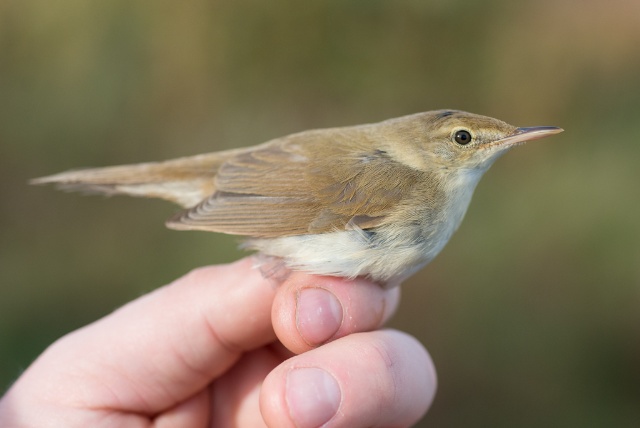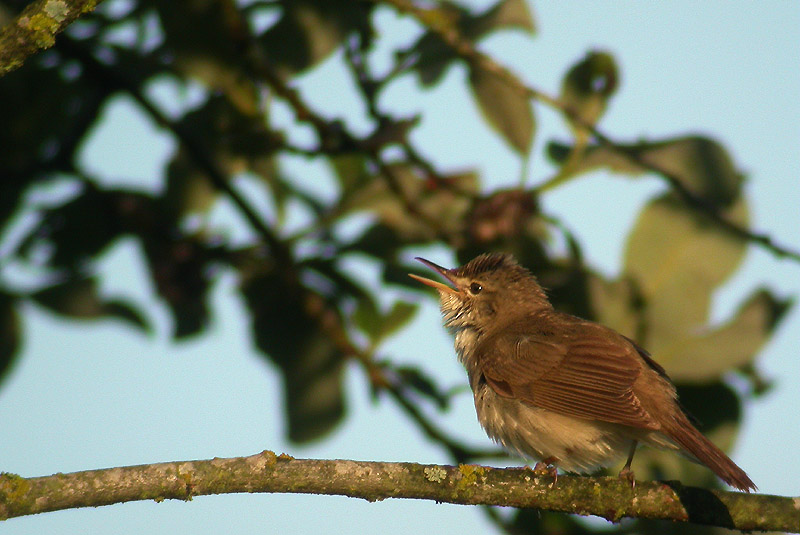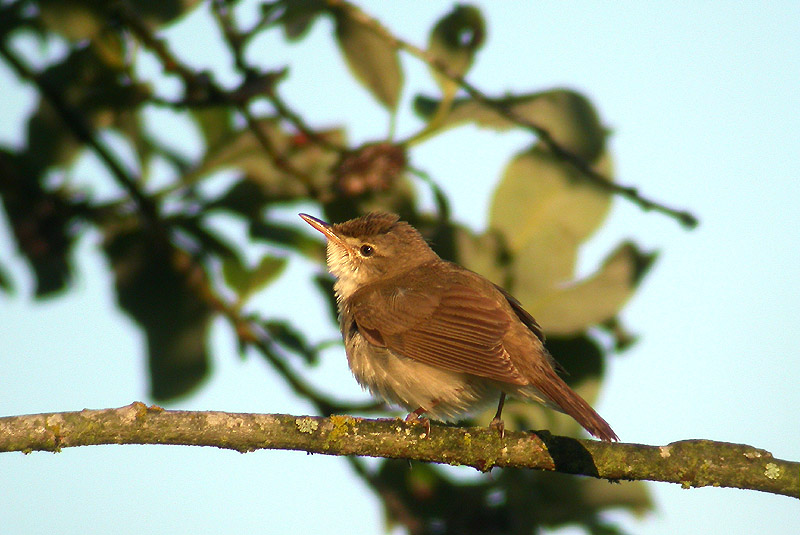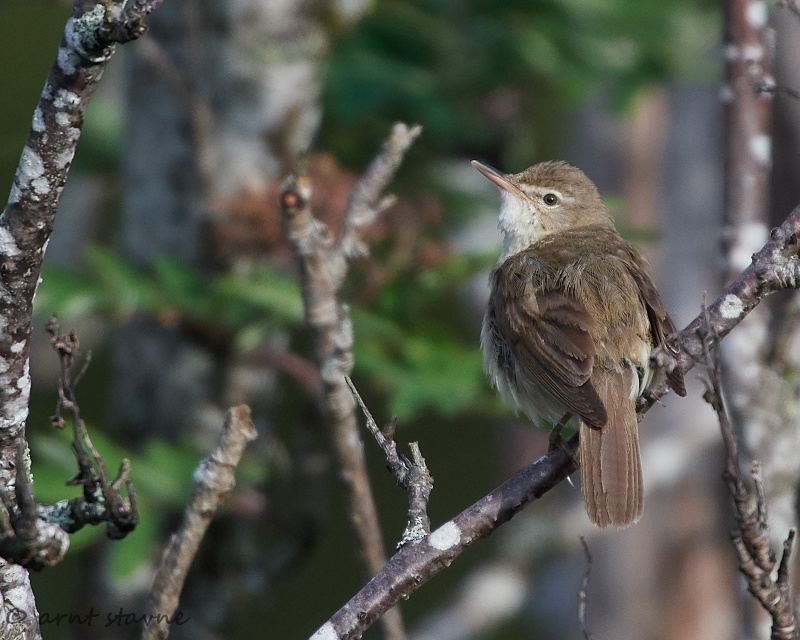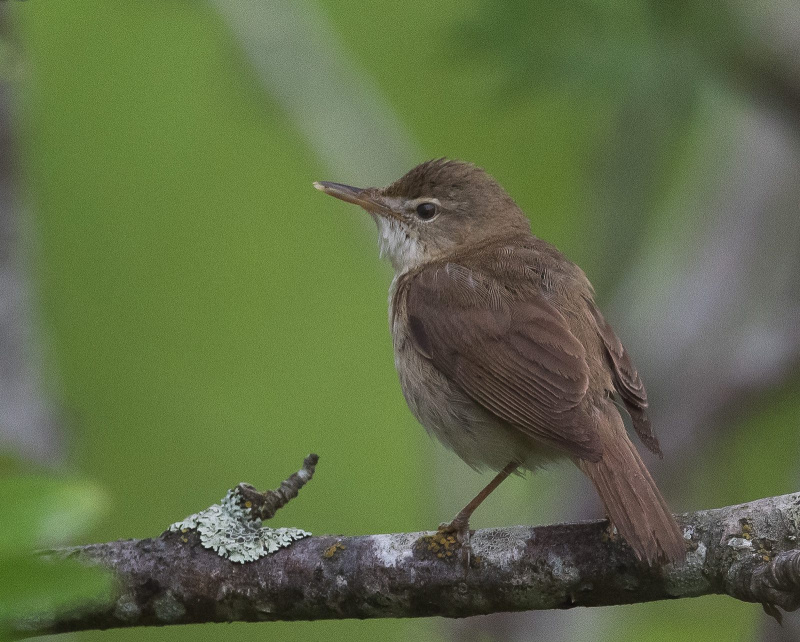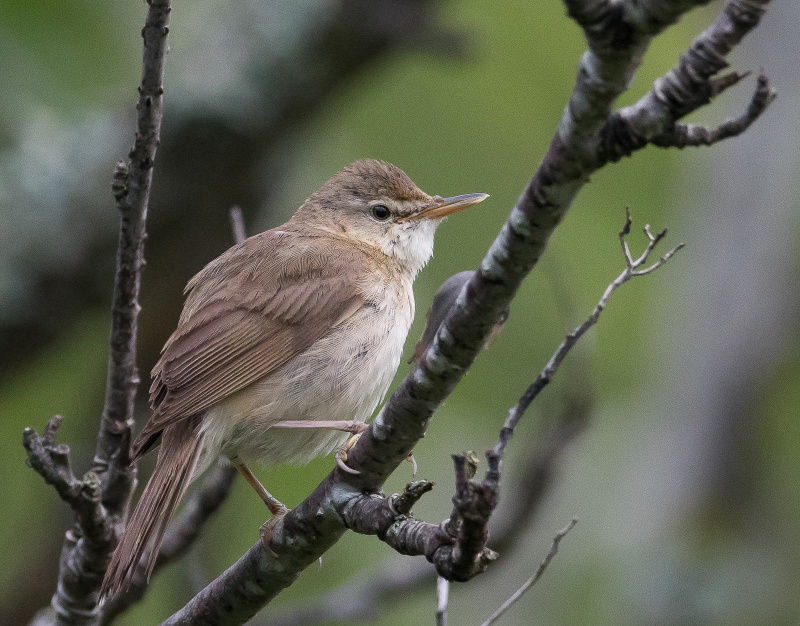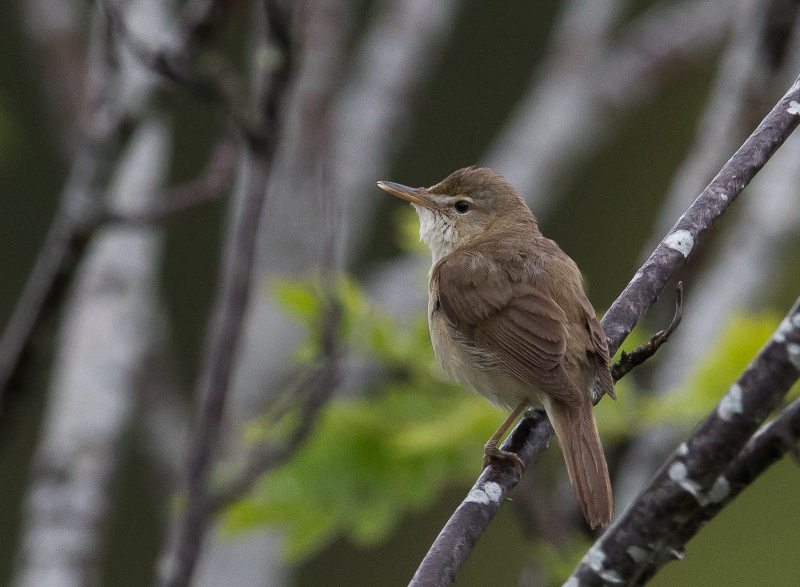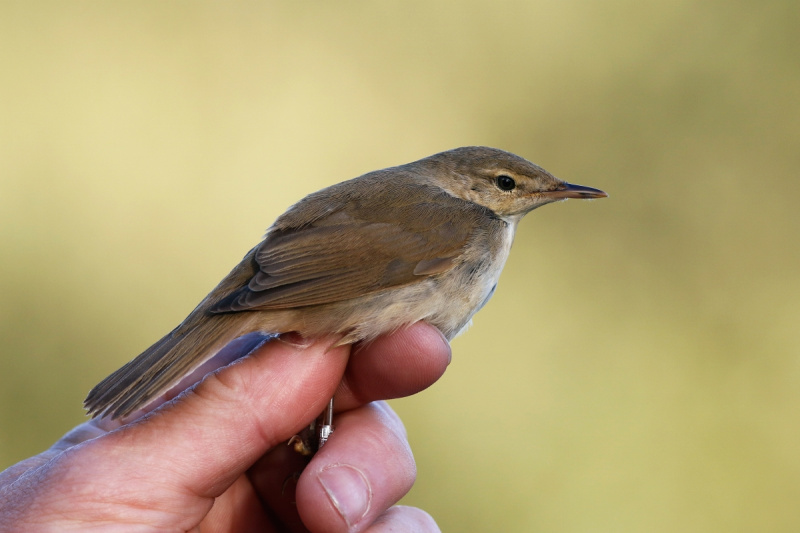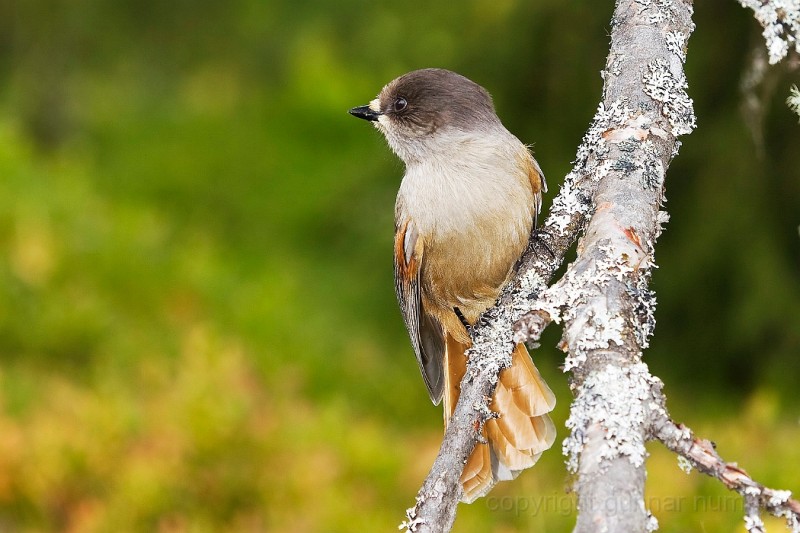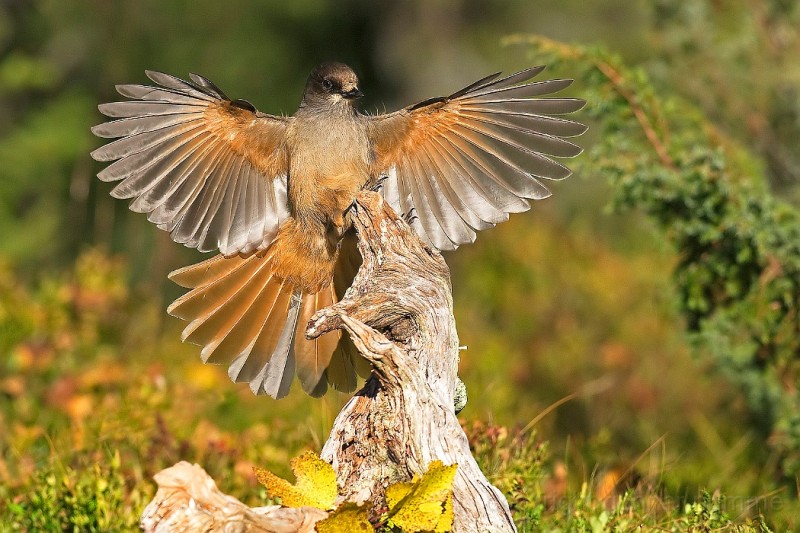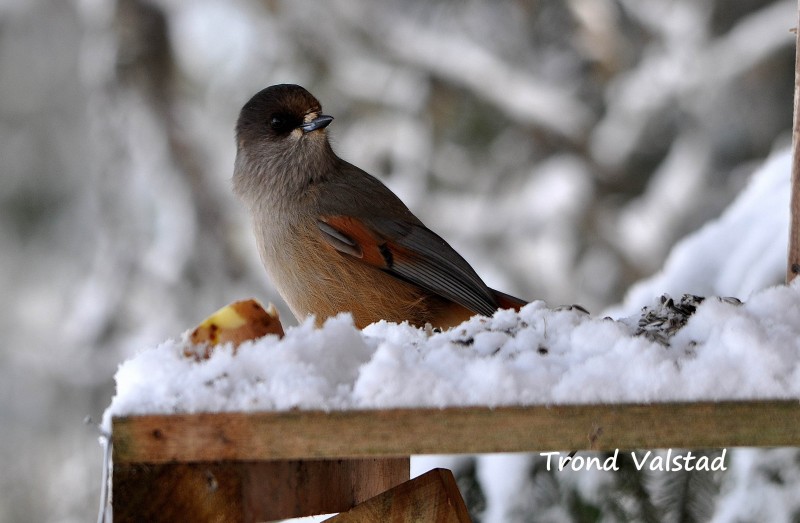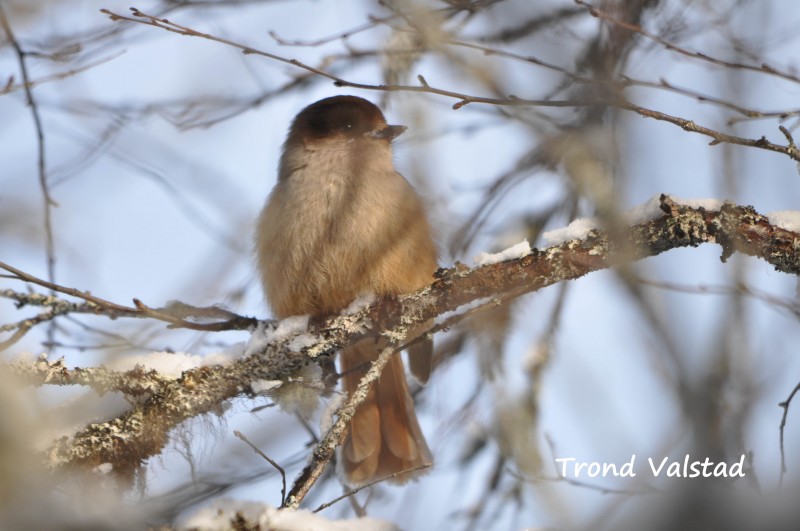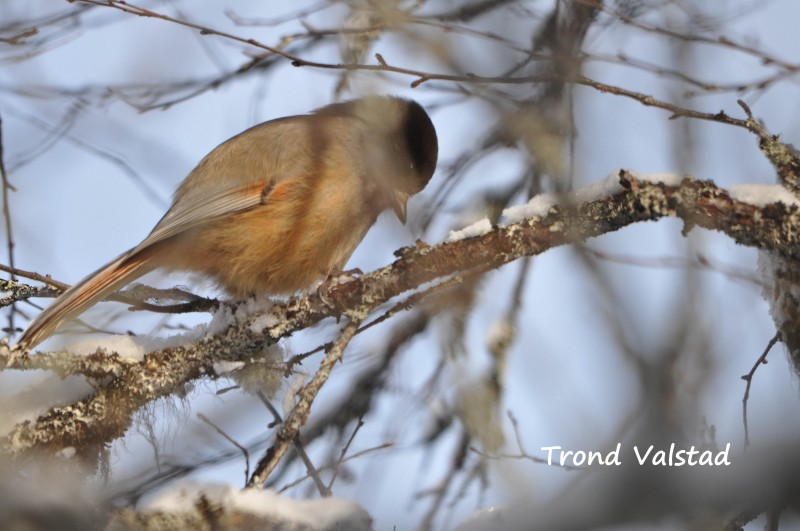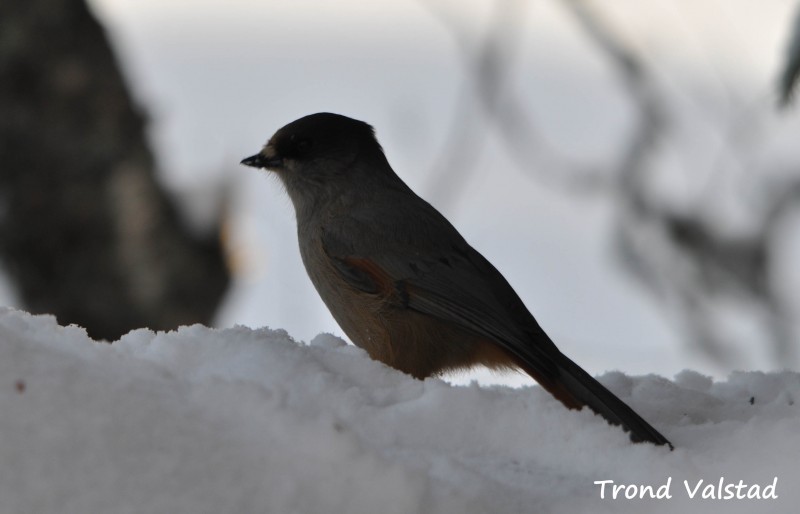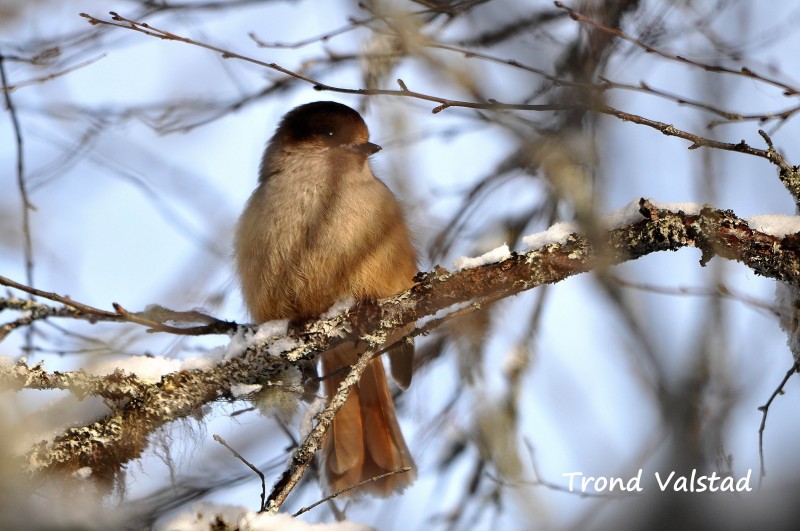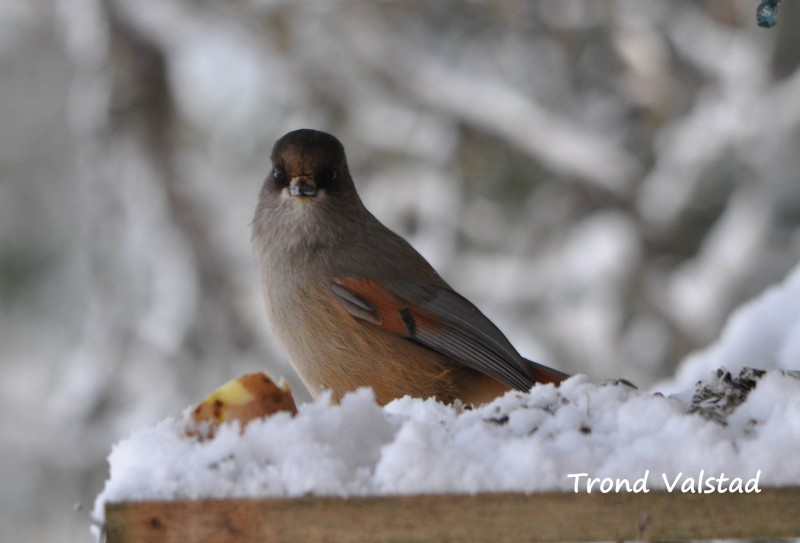Blyth's Reed Warbler (Acrocephalus dumetorum)
Siberian Jay (Perisoreus infaustus)
Similar to Reed Warbler but note very short primary projection, evenly coloured wings with dull tertials. Under tail-coverts almost white, with very little buff tinge. Legs overall darker than congeners. Immature birds with slightly paler legs and warmer upperparts and fringes to flight-feathers. Leaves a slimmer impression than Reed- and Marsh W., with flatter forehead and tapering bill. Posture often Sylvia-like with frequent cocking, flicking and fanning of tail.
Sound:Contact call a short and sharp Lesser Whitethroat-like "tek", different from Mars W. Alarm call a dry, rolling "krrrreet", often with a register break splitting into high register overtones. Song recalls Marsh Warbler in timbre but is generally diagnostic. Tempo slow and deliberate, pace recalling that of Song Thrush, with marked pauses. Typical articulate, arpeggio-like whistling motifs alternated by mimicry are often repeated many times. Daytime song less typical than normal song at night, with faster pace and less repetition.
Song:
Distribution:
Xeno-canto: map
Ecology:Birdlife ecology
Links:
Observation.org Latest observations
Image search Flickr NB! May give other species
CCSound recording:Recorded by Edmunds Racinskis
Pretty unmistakable. Dark brown to grey plumage, with conspicuous rusty patches on wings and tail. Noticeably smaller and slimmer than Jay. Seems all brown when perched, but rusty wings and tail immediately apparent when flying. Flight undulated and several birds are usually following eachother. A social, and very little shy bird.
Sound:Rich repertoire but not very vocal. Song a subdued chirping stream of squeaky notes and mimicry. Alarm call a loud, mewing, buzzard-like "eeeeaaah".
Song:
Distribution:
Wikipedia: map (se also Xeno-canto below)
Ecology:Birdlife ecology
Links:
Observation.org Latest observations
Image search Flickr NB! May give other species
CC
 English
English Albanian
Albanian
 Armenian
Armenian
 Bulgarian
Bulgarian
 Catalan
Catalan
 Croatian
Croatian
 Czech
Czech
 Danish
Danish
 Dutch
Dutch
 Finnish
Finnish
 French
French
 Georgian
Georgian
 German
German
 Greek
Greek
 Hungarian
Hungarian
 Italian
Italian
 Latvian
Latvian
 Lithuanian
Lithuanian
 Macedonian
Macedonian
 Norwegian
Norwegian
 Polish
Polish
 Portuguese
Portuguese
 Romanian
Romanian
 Russian
Russian
 Sami : Lule sami
Sami : Lule sami
 Sami : North sami
Sami : North sami
 Sami : South sami
Sami : South sami
 Scientific names
Scientific names
 Serbian
Serbian
 Spanish
Spanish
 Swedish
Swedish
 Ukrainian
Ukrainian


